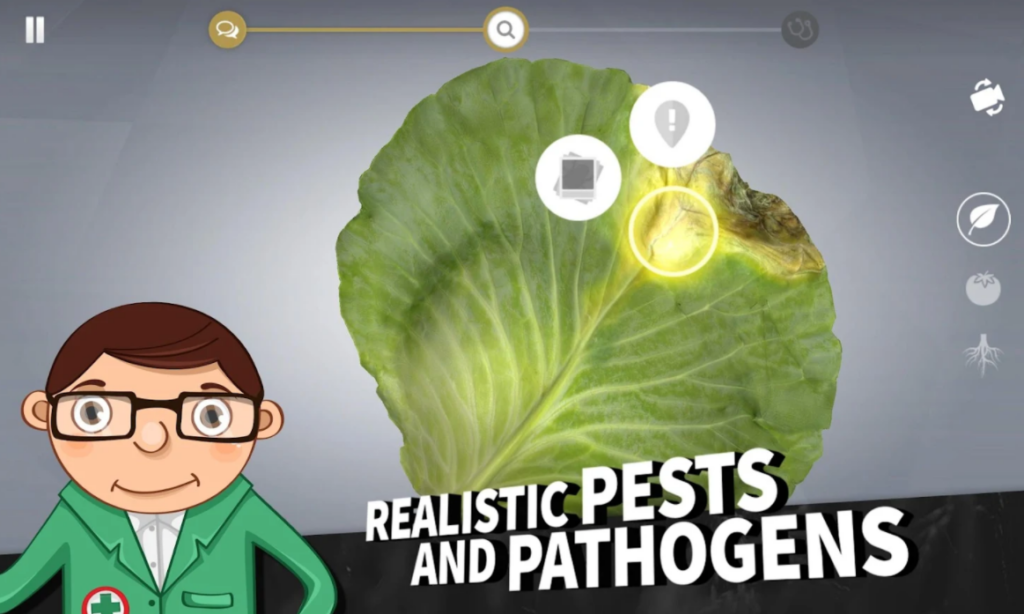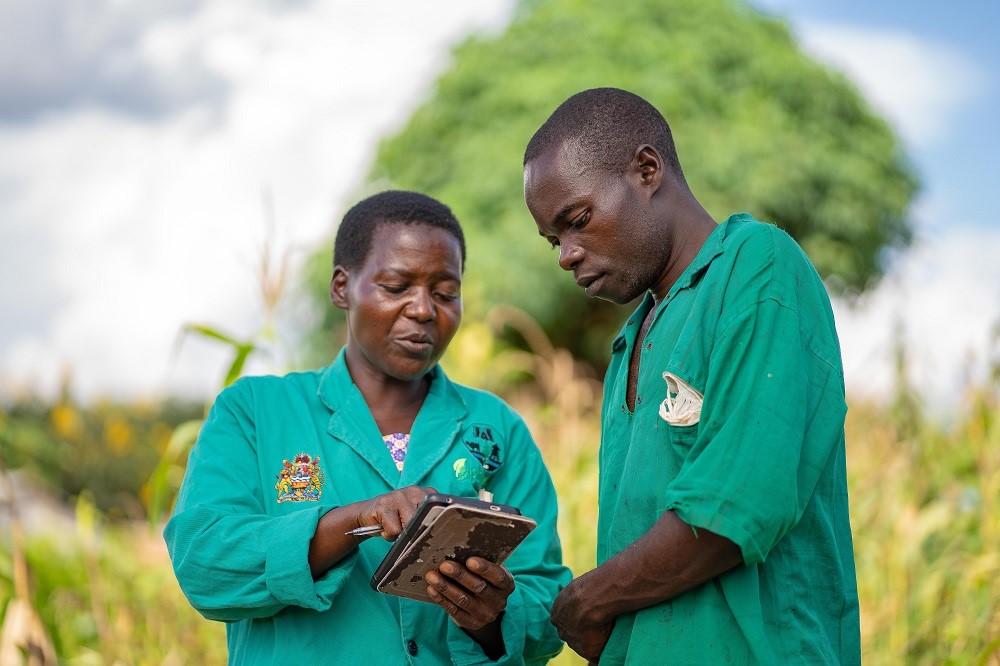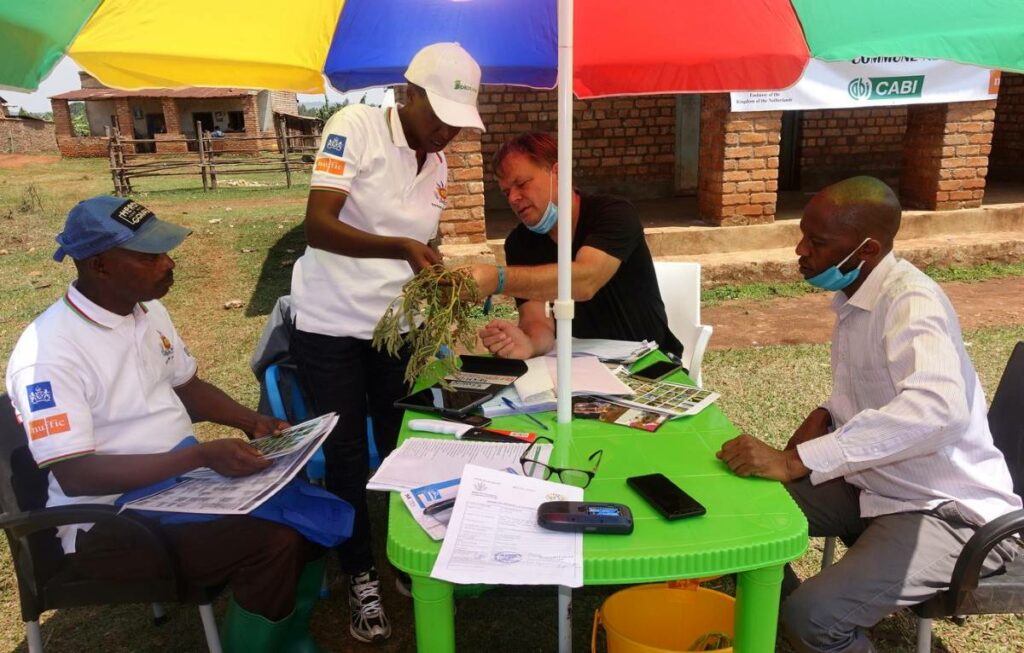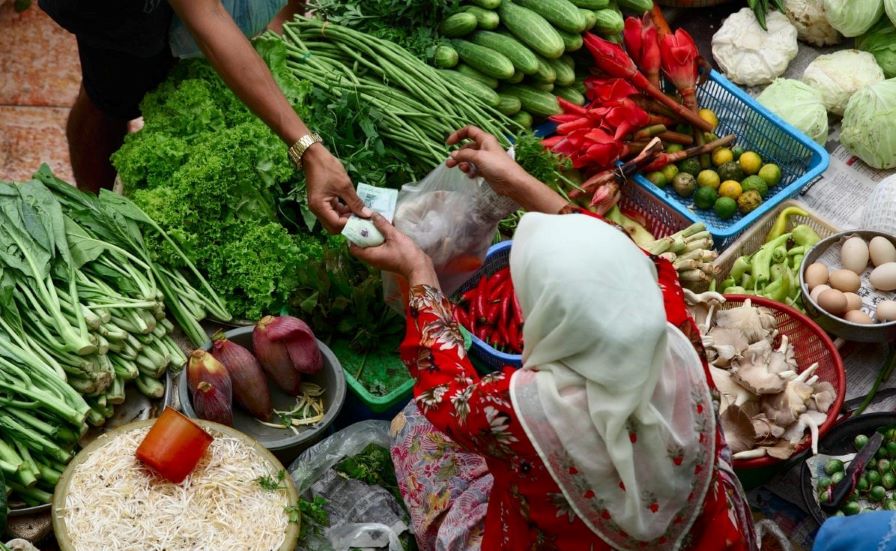PlantwisePlus and the Sustainable Development Goals
The sustainable development goals (SDGs) are the outline to achieving a better and more sustainable future for all. The 17 goals aim to address challenges relating to poverty, inequality, climate change, the environment, and peace and justice. A number of these global goals are central to CABI’s PlantwisePlus programme.
Crop App Index: An easier way to find plant health digital tools
The Crop App Index website helps users to find crop health-related digital tools that support their decision-making. An exploration of available crop-related digital apps showed that there are thousands of plant health websites and apps. However, narrowing down search results to find relevant information is tricky and time-consuming for users. CABI has developed the Crop…
Simulation app for improved plant-health diagnosis skills
CABI’s simulation app Pest Diagnostic Simulator allows users to test their plant pest and disease investigation and diagnosis skills through multiple scenarios, reinforcing investigation and diagnosis skills through engaging gameplay and real-time feedback.
PlantwisePlus most read blogs of 2021
As 2021 draws to a close, we have crunched the numbers and present the most read articles on the PlantwisePlus Blog this year. Plus a few firm favourites. Articles on the launch of PlantwisePlus were some of the most read during 2021, as were those covering the work Plantwise continues to do on the ground…
Conservation farming: can it offset fall armyworm’s impact?
Conservation farming has been promoted in sub-Saharan Africa as a way to potentially improve yields while conserving the environment. Farmer livelihoods are increasingly threatened by climate change, declining soil fertility, land degradation, pests, and diseases. Finding sustainable farming methods that address these challenges is key to feeding a growing population.
Benefits of Pest Risk Information Service highlighted at CODATA Virtual SciDataCon
The benefits of the CABI-led Pest Risk Information Service (PRISE) in helping smallholder farmers mitigate crop pests outbreaks, thereby boosting their yields and livelihoods, have been highlighted at the CODATA Virtual SciDataCon 2021.
Plantwise Knowledge Bank Country Resources – What’s available?
The Plantwise Knowledge Bank (PWKB) is a free online resource that gathers plant health information from across the world. Over 15,000 pieces of content, which include, pest management decision guide’s (PMDG), factsheets for farmers (PFFF), species pages, photo sheets, manuals and video factsheets in over 100 languages.
Plantwise Burundi: building extension skills and resources
The role of extension staff in reaching smallholder farmers with relevant agricultural information is key to enabling them to grow more and lose less to crop pests and diseases. The advice given on agricultural practices helps to improve crop quality and yield and to sell agricultural produce for better prices.
Successful PRISE-FRT radio campaign promotes IPM to farmers in Malawi
The PRISE project has carried out a successful radio and SMS campaign targeting maize, tomato and bean smallholder farmers in Malawi. In collaboration with Farm Radio Trust (FRT) the campaign was developed in late 2020 to disseminate the PRISE pest alert forecasts to rural farmers in Mchinji and Balaka districts and promote the uptake of…
Increasing the demand for and supply of safer food
Saturday 16th October marks World Food Day – a day designed to raise awareness and action for those who suffer from hunger and for the need to ensure healthy diets for all. Around 805 million people go hungry every day. With 80% of food consumed in developing regions grown by small-scale farmers, finding a sustainable…










